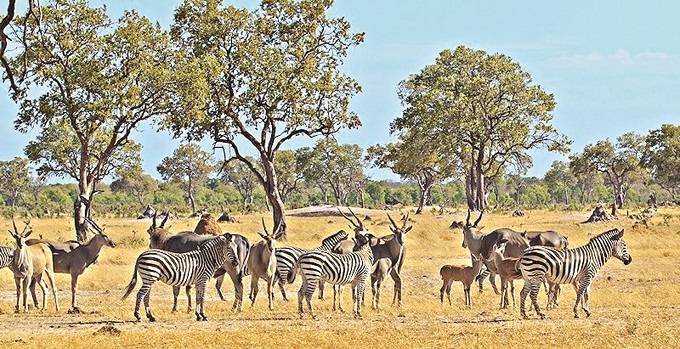
Leonard Ncube, Victoria Falls Reporter
ITALIAN Ambassador to Zimbabwe, Mr Carlo Perrotta, has lined up a series of meetings with stakeholders in Hwange as his government is mobilising resources to fund tourism and anti-poaching programmes in communities adjacent to the Hwange National Park.
The country’s largest game reserve in north western Zimbabwe has over the years witnessed rampant wildlife poaching activities while communities living adjacent to the national park have expressed concern over loss of property and life due to escalating human-wildlife conflict.
Ambassador Perrotta arrived in Hwange on Sunday where he met anti-poaching teams comprising rangers and police.
On Monday he was reportedly scheduled to engage other stakeholders including members of the community.
Yesterday, he met five Hwange traditional leaders namely Chiefs Dingani-Nelukoba, Mvuthu, Nekatambe, Shana and Whange at Gwango Elephant Lodge to get an appreciation of the needs and concerns of the community regarding human-wildlife conflict.
Hwange District Development Co-ordinator Mr Simon Muleya confirmed today’s meeting with traditional leaders.
“The Italian Ambassador has been here in Hwange since yesterday to talk about anti-poaching in the areas around the national park. The Italian government wants to fund tourism activities and anti-poaching programmes hence the meeting,” said Mr Muleya.
As part of the programme, the Italian Ambassador will interact with various stakeholders and visit a number of projects in and around the national park including a visit to the lion research centre and tour of the game park.
He will also visit the Victoria Falls Trust Wildlife Diseases and Forensic laboratory tomorrow.
Communities adjacent to Hwange National Park have over the years complained about destruction of their properties, crops and livestock as well as loss of life due to attacks by wildlife.
Various organisations have also started anti-poaching activities around communities, as the Zimbabwe National Parks and Wildlife Management Authority pushes for a 50 percent reduction in poaching activities around national parks.
Gwango Elephant Lodge, situated at the edge of Hwange National Park in Mabale, is also part of the initiative.
Ms Elisabeth Pasalk from Gwango recently revealed that the facility had started a number of activities to raise awareness among community members.
These include a culture village where people from the community meet to talk about wildlife and human and wildlife conflict as well as organising schools’ visits.
A committee was set up comprising traditional leaders, education officials and Gwango’s representatives to spearhead anti-poaching activities. — @ncubeleon.
